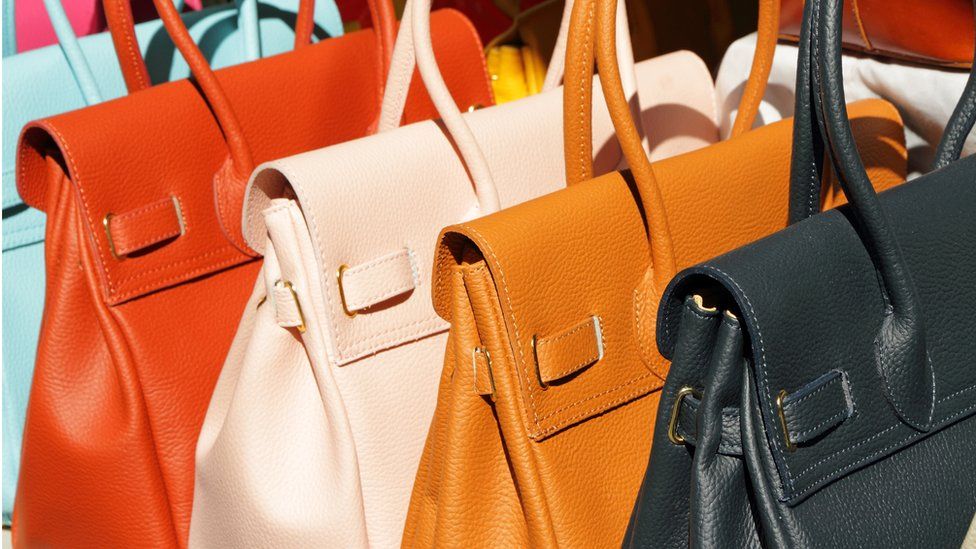Luxury good-makers win fight over online sales bans
- Published

Europe's top court has ruled that luxury brands can stop distributors selling their products online on websites such as Amazon and eBay.
The European Court of Justice said in principle a ban was "appropriate to preserve the luxury image" of products.
This would not break competition rules by limiting consumer choice, it said.
The case was bought by beauty giant Coty, which owns brands such as Marc Jacobs and Calvin Klein, but is expected to set a precedent.
Opponents have warned that restricting sales will hurt smaller businesses.
But the European court said that for luxury goods firms, such rules can be critical to protecting the value of the products.
"The quality of luxury goods is not simply the result of their material characteristics, but also of the allure and prestigious image which bestows on them an aura of luxury," the court found.
The decision stemmed from a case brought by Coty's German unit against one of its retailers, Parfumerie Akzente, which used Amazon to sell Coty products.
Coty welcomed the decision, which it said resolved years of uncertainty.
"It is a clear ruling for the protection of luxury brands' image, the defence of our teams' work and the protection of consumers' rights and information," Coty said.
Fashion companies and other firms have long clashed with Amazon, which they maintain does not do enough to police counterfeit goods.
Earlier decisions by German regulators have found against big brands such as Adidas and Asics in similar disputes over online sales restrictions.
Those decisions found that bans of sales on websites such as Amazon and eBay aimed to control prices.
They also said limiting the use of such sites would ultimately concentrate sales in the hands of manufacturers and a few large firms, hurting smaller retailers.
The president of the German cartel office, Andrea Mundt, suggested the ruling's focus on luxury goods meant it would have a limited impact.
"Our preliminary view is that such manufacturers have not received carte blanche to impose blanket bans on selling via platforms," he said.
- Published4 October 2017
- Published30 March 2017
- Published17 October 2016
- Published27 June 2017